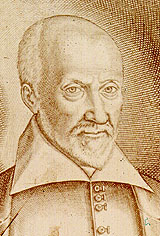A Quote by African Spir
In life we only try to produce, to win, and enjoy the more we can; in science, to discoverand invent the more we can; in religion, to dominate (or rule over) on the greatest number of people we can; whereas the forming of the character, the further development (or in-dept analysis, "appronfondissement", Fr.) of the faculties of the intelligence ("les facultés de l'intelligence", Fr.), the refinement of the consciousness and of the heart, are considered incidental (or subordinate) things.
Related Quotes
The need for sociability induce man to be in touch with his fellow men. However, this need might not ("ne saurait", Fr.) find its full (or complete) satisfaction in the conventional (or superficial, - "conventionnel", Fr.) and deceitful world, in which (or where) everyone is mainly (or mostly) trying to assert oneself in front of others ("devant les autres", Fr.), to appear, and hoping to find in society ("mondaine", Fr.) relationships some advantages for his interest and vanity (or vainglory or conceit", Fr).
As the antagonism between those who possess, and those who do not, is becoming more acute day after day, we can already foresee a moment when it will bring about ("entraînera", Fr.) severe (big, high, intense, - "grands", Fr.) disasters, if we do turn (direct, aim, - "dirige", Fr.) life in time the social life in new directions (or ways, - "dans des voies nouvelles", Fr.)
When under the influence of certain (or some) reasons (or causes) (alcohol, war, etc - added Spir here) the low instincts are unbridled (or unrestrained), the brute appears (or come forward, "apparait", Fr.) and rule over (or dominate), stifling every ("toute", Fr.) noble, generous impulse; it is then the ruin (or downfall or decline) of any humanity in man.
The feeling ("sens", Fr.) of solidarity that is born amidst a community rest on the feeling of antagonism arouse (aroused ? arose ?... sorry, - "suscité", Fr.) by those who are opposed to it. Most of the time we only adhere to a party or a group, in order to better (or more, - "pour mieux se", Fr.) differentiate ourselves of another.
It goes without saying that only inner greatness possess a true value ("une valeur véritable,", Fr.) . Any attempt to rise up (or at rising up, - "s'élever", Fr.) outwardly above others, or to want (or wish) to impose one's superiority, denote a lack of moral greatness, since we do not try to replace ("suppléer", Fr.) in that way (.... in French "par là", Fr.) to what, if we did really possess it, would have no need whatsoever to flaunt itself.
See that unfortunate soldier who is falling hurt to death ("tombe blessé à...", Fr.) on the battlefield; he learns that his folks have vanquished and dies happy. He detached himself from himself (s'est détacher de lui-même", Fr.), has identified himself with something greater and more lasting than himself; his homeland ("patrie", Fr.); thus, while dying as an individual, he has the certainty to survive in a larger existence.
Infringing upon (or encroaching) the right of a single person, we overthrow (or turn upside down) the whole order on which rest legal agreements; for if we break (or transgress or violate) the undertakings enter unto ("les engagements contractés", Fr.), nothing assure that we will not break them, possibly ("éventuellement", Fr.) in another.
If you are a meditator, as your meditation goes on becoming more and more luminous, your intelligence will be growing to the last breath of your life. Not only that, even after the last breath your intelligence will continue to grow - because you are not going to die, only your body will be dying. And the body has nothing to do with intelligence, mind has nothing to do with intelligence. Intelligence is the quality of your awareness - more aware, more intelligent. And if you are totally aware, you are as intelligent as this whole existence is.
Besides the progress of industry and technique, we see a growing discontent among the masses; we see, besides the expansion ("expansion,", Fr.) of instruction, distrust and hatred expanding among nations ("s'étendre la méfiance et la haine entre," Fr.), that vie with one another ("qui rivalisent à l'envi," Fr.), by the increase of their armies and the improvement of their engines of murder ("engins meurtriers", Fr).






























